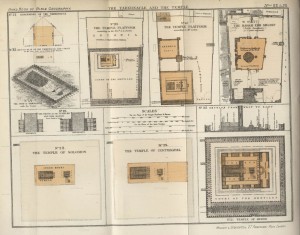 The exodus (small “e”) was a family of five fleeing the New York summer in our Volvo wagon just last week.
The exodus (small “e”) was a family of five fleeing the New York summer in our Volvo wagon just last week.
Crossing the East River on the Brooklyn Bridge, a veritable wall of water reared up on either side of us in the gray-out of a rainstorm indistinguishable from the river below. Naturally, this was followed by bumper-to-bumper traffic on the FDR, a seeming pile-up of similar-minded refugees, enemy chariots, or both.
All in the effort—in our case, at least—to finally inaugurate family camping.
The desire to do so had been brewing in me for years, what with city life and three kids whose feet were far more used to asphalt than grass, to crosswalks than nature walks, and streetlights than trees. Though our youngest is only three, and thus a significant liability to collective sleep in a shared tent, our oldest recently turned nine—meaning there was only so much time before she’d rather die than go camping with her family.
Not by coincidence did this desire in me grow alongside my interest in the Tabernacle, that singular tent of meeting in the epic family camping experience of the Exodus.
For the beloved half-verse of Exodus 7:16, “Let my people go” when quoted is rarely followed by the second half: “that they may serve me in the wilderness.” I’m veering off into the subject for another post here, i.e. the purpose of liberation being servitude, but for the purposes of this post the focal point of higher service in the wilderness was a revelatory structure of breathtaking beauty only apparent to those who stood inside it.
I had no such hopes for the Kelty Acadia 6, our family tent recommended by a friend. But the fact that I could stand inside it and hang a candle lantern from the dome was enough of an approximation to the Tabernacle for me.
Ten hours later arriving in central Vermont after a drive that was supposed to be half that long without relentless rain and traffic, I didn’t even get to set the damn thing up.
The rooftop cargo bag had proven to be only so waterproof, and I had reserved an isolated campsite so as not to pitch our tent alongside an R.V. This meant repeatedly walking several hundred yards from the car to the site as my wife and I ferried our equipment in the rain while the kids took shelter in the lean-to.
Thank God there was a lean-to. There we spent the first of our two nights camping, a dinner of freeze-dried beef stroganoff followed by a fitful night of sleep in damp bags on the hard wooden floor.
I went to bed laughing at how preposterous a thought the Exodus and Tabernacle were: if this is what it was like for a mere family of five on a two-night holiday in lush Vermont (before the weeklong rental at a farmhouse further north), how cold roughly 600,000 Israelites hold it together on a forty-year sojourn in the barren wilderness?
The silver sockets alone for the boards of the Tabernacle weighed an estimated five-and-a-half tons, for crying out loud.
There’s plenty of scholarship out there to say that the Israelites didn’t hold it together, in fact—neither the Exodus nor the Tabernacle—because both are scriptural fictions.
But the preposterous thought somehow had the opposite effect of dampening my romance with these biblical stories amidst the driving rain that first night. If anything, my heartfelt witness to them only grew warmer and brighter in the dark for their frictional effect, opposed to anything fictional, of rubbing up against my hyper-civilized life—a life in which my iPhone roughly bears the same dimensions in miniature of the Tabernacle.
As I fell asleep that first night, I found myself thinking back to travels in the Xinjiang province of western China twelve years ago with my good friend, Travis.
In the Kazak hinterlands bordering Pakistan, as dead center in the absolute middle of nowhere as I have ever been, we spent my thirtieth birthday with a tiny community of Uighur shepherd families living in less than a dozen yurts on the edge of Lake Karakol.
At the time I had no idea that my turning thirty was the age of consecration to priesthood in ancient Israel; nor that having shaved my head to mark the milestone reflected an Egyptian tradition for their own priests.
But it makes for a good and wise laugh to see these factoids as a picture of the latter in me chasing the former in me, all the way to that Asian wilderness and this belated appreciation for the remote relevance to a doomed excursion in Vermont.
Aside from seeing a huge full moon over Lake Karakol that night, and hearing Travis belt out “Helpless” by Neil Young on his guitar for a rapt audience of wind-burned Uighurs in their yurt, what struck me most was the sight of them sleeping side by side on blankets on the floor. It was family camping of the lifelong variety.
The image would only strike me more in hindsight a few years later upon the onset of parenthood, what with its arsenal of cribs, baby monitors, and the like. In the yurt there was none of that, and it seemed to be a far more orderly, peaceful scene for it.
Perhaps this memory counterbalances any thought of the Exodus and Tabernacle as preposterous endeavors, putting contemporary domesticity in its own questionable light.
So it was that on the second night of our inaugural family camping experience, with the Kelty tent still in its bag and my family sleeping side-by-side like Uighurs in the lean-to, I sat down to read Stephen F. Olford’s The Tabernacle: Camping with God by headlamp.
The swollen river was running hard through the trees below our campsite, and thunder rumbled softly over the Green Mountains above.
I could hear Travis singing “Helpless,” this time for me in the face of a tableau so holy.
Bradford Winters is a screenwriter and poet, and works for The Levinson/Fontana Company as a producer and writer in television. He lives in Brooklyn with his wife and three children.











